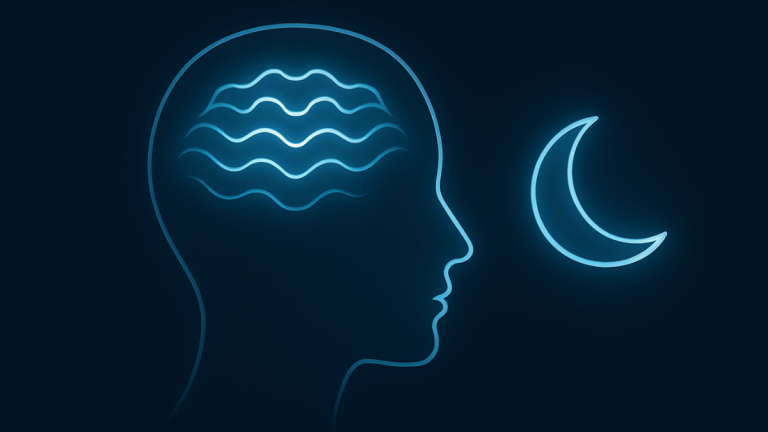10 Proven Ways to Eliminate Brain Fog for Good
Imagine sitting at your desk with a looming deadline, but every thought feels slow, heavy, and blurred—like trying to see through a frosted window. You keep rereading the same line. Words won’t come. Even your morning coffee seems to have lost its magic.
That frustrating state of reduced mental clarity, slower concentration, and impaired cognitive function is brain fog. While it’s not an official medical diagnosis, for professionals, entrepreneurs, and students, it can feel like an invisible weight holding back your productivity and creativity. As someone who has spent over 18 years researching cognitive performance, I’ve seen how debilitating this feeling can be.
The encouraging truth? Brain fog is usually a symptom, not a life sentence. It’s your brain’s way of signaling that something in your internal or external environment is out of balance. This guide will serve as your blueprint to identify the causes and implement proven, science-backed strategies to clear the haze. We will explore the actionable lifestyle habits, powerful dietary changes, and key supplements that can help you restore your focus, concentration, and cognitive sharpness for good.
Understanding the Root Causes of Brain Fog
Before we dive into the solutions, it’s crucial to understand what’s causing the problem. Brain fog is rarely caused by a single issue; it’s often a result of several interconnected factors. By identifying the root cause, you can better target your approach.
Chronic Stress and Cortisol
Modern life is filled with stressors that can trigger a constant release of the stress hormone, cortisol. While useful in short bursts, chronically elevated cortisol is toxic to the brain. It disrupts the balance of neurotransmitters like serotonin and dopamine, leading to mood swings and a lack of motivation. More alarmingly, long-term cortisol exposure can damage neurons and even shrink the hippocampus, a brain region critical for memory and learning.
Poor Gut Health (The Gut-Brain Axis)
The connection between your gut and your brain is profound. An unhealthy gut microbiome, often caused by a poor diet or stress, can lead to increased gut permeability, or “leaky gut.” This allows inflammatory molecules called cytokines to enter your bloodstream and travel to your brain, disrupting its delicate chemistry and contributing to feelings of mental fatigue and confusion.
Nutrient Deficiencies
Your brain is a nutrient-hungry organ. Deficiencies in key vitamins and minerals can severely impair its function. For example, a lack of B vitamins can disrupt energy production in brain cells. Low iron can reduce oxygen delivery, leading to fatigue and poor concentration. Insufficient magnesium, a mineral involved in over 300 enzymatic reactions, can slow down neural conduction and communication.
Blood Sugar Swings
The brain runs primarily on glucose. A diet high in sugar and refined carbohydrates causes rapid spikes and subsequent crashes in your blood sugar levels. This creates energy instability in the brain. During a crash, your brain is starved of its primary fuel source, leading directly to that classic feeling of mid-afternoon brain fog, irritability, and an inability to focus.
Foundational Lifestyle Changes to Clear the Mental Haze
1. Prioritize Deep, Restorative Sleep
Sleep is your brain’s built-in reset and detoxification system. It is the most powerful, non-negotiable tool for eliminating brain fog. During deep, non-REM sleep, the brain’s glymphatic system actively flushes out metabolic waste products, including beta-amyloid plaques, which are strongly linked to cognitive impairment if they build up. Following this, REM sleep works to strengthen the neural connections associated with creativity, learning, and consolidating the day’s memories. Inadequate sleep disrupts this entire process, leading to a cascade of problems: it throws off neurotransmitter balance, reduces glucose uptake in brain cells, and elevates cortisol—all classic triggers for mental fatigue and slow processing speed.
Your Evening Brain Recharge Routine:
- Power Down: Begin to wind down at least 60 minutes before your target bedtime. Dim the lights in your home and avoid all screens (phones, tablets, TVs), as the blue light they emit can suppress melatonin production.
- De-Stress: Engage in quiet, calming activities. Do gentle stretches, read a physical book, or spend a few minutes journaling to process the day’s thoughts and lower mental tension.
- Cool Your Environment: Set your bedroom temperature to around 65°F (18°C). A cooler environment is proven to optimize your body’s natural drop in core temperature, which facilitates deeper, more restorative sleep.
- Embrace Darkness: Make your bedroom a sanctuary of darkness. Use blackout curtains or a high-quality eye mask to block out all sources of light, which can disrupt your sleep cycles even if you aren’t consciously aware of it.
- Time Your Consumables: Avoid caffeine in any form after 12 p.m. While alcohol might make you feel drowsy, it severely disrupts REM sleep, so it’s best to limit it in the hours before bed.
2. Implement Strategic Physical Exercise
Movement is one of the most potent nootropics available. Strategic exercise directly boosts a critical protein called Brain-Derived Neurotrophic Factor (BDNF), which acts like fertilizer for your brain cells, helping neurons grow stronger, more resilient connections. Aerobic exercise, like brisk walking or cycling, increases cerebral blood flow, delivering a fresh supply of oxygen and glucose to fuel demanding cognitive activity. Anaerobic training, such as weightlifting or high-intensity interval training (HIIT), supports the production of hormones like testosterone and growth hormone, which are crucial for motivation, mental resilience, and drive.
Your Weekly Brain-Boost Plan:
- Aerobic Base: Aim for 30 minutes of moderate-intensity cardio (brisk walking, cycling, swimming) five times per week.
- Anaerobic Strength: Incorporate 2-3 sessions per week of resistance training or HIIT.
- Movement Snacks: Combat the sluggishness of a sedentary workday by taking short, 5-minute walks or stretching breaks every hour. This prevents circulatory stagnation and keeps your brain oxygenated.
3. Practice Mindfulness and Stress Reduction
Mindfulness is the practice of training your prefrontal cortex—the logical, executive part of your brain—to have better control over the amygdala, the brain’s primal fear and stress center. Chronic stress keeps your cortisol levels perpetually high, which is incredibly damaging to the hippocampus, the brain region essential for forming new memories. By practicing mindfulness, you actively lower cortisol, reduce inflammation, and calm the “default mode network”—the part of the brain linked to mind-wandering and distraction.
A Simple 3-Minute Breathing Reset:
- Find a quiet place to sit comfortably with your back straight.
- Close your eyes and take a slow, deep inhale through your nose for a count of four.
- Hold your breath gently for a count of two.
- Exhale slowly and completely through your mouth for a count of six.
- Repeat this cycle for 3 minutes, focusing only on the sensation of your breath.
4. Get Morning Sunlight Exposure
The timing of light exposure is a critical signal for your brain’s internal clock, or circadian rhythm. Exposing your eyes to direct sunlight within the first hour of waking triggers the Cortisol Awakening Response (CAR), a natural process that sets your brain’s clock for the day, promoting alertness and drive. This morning light also boosts serotonin levels, which helps to elevate your mood during the day and is a precursor that converts to the sleep hormone melatonin at night. This simple habit creates a virtuous cycle of daytime alertness and restful, restorative sleep.
Your Morning Brain Fog Reset:
- Aim for 10-20 minutes of direct sunlight exposure within an hour of waking. Do not wear sunglasses.
- During winter months or on persistently overcast days, a 10,000-lux light therapy lamp can be a powerful substitute.
- Even on a cloudy day, the light intensity outside is far greater and more effective than standard indoor lighting.
Powerful Dietary and Nutrition Fixes
5. Hydrate Aggressively and Add Electrolytes
Your brain is approximately 75% water. Proper hydration is essential for maintaining blood volume and ensuring efficient nutrient delivery. However, water alone isn’t enough. Electrolytes, particularly sodium and potassium, are critical minerals that create the electrical gradients necessary for your neurons to fire and communicate with each other. Even mild dehydration of 1-2% can temporarily shrink brain tissue, slow nerve conduction, and impair cognitive functions like focus and short-term memory. Without an adequate sodium-potassium balance, the communication between your brain cells becomes sluggish and inefficient.
Your Hydration Plan:
- Start your day by drinking a large glass (16 oz / 500 ml) of water upon waking.
- Add a pinch of high-quality sea salt or a sugar-free electrolyte mix to one of your glasses of water each day, especially after exercise.
- Incorporate potassium-rich foods like avocados, spinach, and sweet potatoes into your diet.
6. Eliminate Inflammatory Foods
A diet high in sugar, refined carbohydrates, and unhealthy fats is a primary driver of chronic inflammation throughout the body and brain. These foods cause a spike in inflammatory molecules called cytokines, which can disrupt neurotransmitter signaling and damage brain cells. This neuroinflammation is a key culprit behind mental fatigue, low motivation, and poor concentration. Removing these foods is one of the most impactful changes you can make.
Foods to Avoid:
- Sugary drinks, pastries, candy, and high-fructose corn syrup.
- Refined carbohydrates like white bread, white pasta, and crackers.
- Fried foods and heavily processed fast foods.
- Industrial seed oils like canola, soybean, and vegetable oil.
7. Fuel Your Brain with Healthy Fats
Your brain is the fattiest organ in your body, composed of nearly 60% fat. The membranes of your billions of neurons are built from fatty acids, and their quality determines how well those neurons can communicate. Omega-3 fatty acids, particularly DHA, are the most important structural fats for your brain, supporting learning and memory. EPA, another Omega-3, is a powerful anti-inflammatory. MCT oil provides a unique type of fat that can be converted into ketones, an alternative and highly efficient fuel source for the brain that bypasses glucose metabolism, offering quick and clean energy.
Your Healthy Fat Plan:
- Eat fatty, low-mercury fish like wild-caught salmon or sardines twice per week.
- Consider supplementing with a high-quality fish oil providing 1-2 grams of combined EPA/DHA daily.
- Add 1 tablespoon of MCT oil to your morning coffee or smoothie for a quick cognitive boost.
Key Supplements & Compounds for Lasting Clarity
8. Lion’s Mane Mushroom
This medicinal mushroom is a powerhouse for long-term brain health. It contains unique compounds called hericenones and erinacines, which have been shown to boost the production of Nerve Growth Factor (NGF). NGF is a critical protein that supports the repair, growth, and maintenance of your neurons. By supporting neurogenesis, Lion’s Mane enhances neuroplasticity and cognitive resilience. The effects are cumulative, often taking 2-4 weeks to become noticeable. A typical dose is 500–1000 mg per day of a high-quality fruiting body extract.
9. Citicoline
Citicoline is a highly bioavailable form of choline, an essential nutrient for brain health. It acts as a precursor to two vital compounds: acetylcholine, a neurotransmitter critical for learning and memory, and phosphatidylcholine, a key component of your brain cell membranes. By providing these raw materials, Citicoline supports attention, learning, and the mitochondrial energy production needed for mental endurance. A common dosage is 250–500 mg per day, often split into two doses.
10. Rhodiola Rosea
This powerful adaptogenic herb has been used for centuries to combat fatigue and improve resilience under pressure. It contains active compounds called rosavins and salidrosides that help to balance cortisol levels and enhance the brain’s oxygen utilization. This makes Rhodiola particularly effective for reducing stress-induced mental fatigue and boosting cognitive function during demanding tasks. A typical dose is 200–400 mg per day of a standardized extract.
Frequently Asked Questions about Brain Fog
How long does it take to see results from these changes?
It varies, but most people notice initial improvements within the first 1-2 weeks, especially from foundational changes like optimizing sleep and hydration. Benefits from dietary changes can take 2-4 weeks to become significant, while supplements like Lion’s Mane or Bacopa Monnieri may take 4-8 weeks of consistent use for their full effects to build. The key is consistency.
Can I just drink more coffee to fix my brain fog?
While caffeine can provide a temporary boost in alertness, it’s often a short-term patch that can worsen the problem long-term. Over-reliance on caffeine can disrupt your natural sleep cycles and lead to adrenal fatigue, both of which are major contributors to brain fog. It’s better to address the root causes rather than just masking the symptoms.
Is brain fog a sign of a serious medical condition?
In most cases, brain fog is a result of the lifestyle, diet, and stress factors discussed in this article. However, persistent and severe brain fog can sometimes be a symptom of underlying medical conditions, such as thyroid issues, nutrient deficiencies, or chronic fatigue syndrome. If your brain fog does not improve with these lifestyle changes or is accompanied by other serious symptoms, it is essential to consult a qualified healthcare professional for a full evaluation.
Peter Benson’s Take
In my 18+ years of researching cognitive performance, I’ve seen countless people search for a single supplement to cure their brain fog. Here is the honest truth: it doesn’t exist. Brain fog is your brain’s check engine light. It’s a signal that your foundational systems—sleep, nutrition, stress management—are running on empty. The strategies in this guide aren’t just tips; they are the essential maintenance your brain requires.
My advice is to earn your clarity before you try to buy it. Master your sleep hygiene and clean up your diet for 30 days. The profound improvements you’ll see from these foundational habits alone will be more powerful than any pill. Think of supplements as the final 10%—the high-performance tuning for an already well-maintained engine, not a patch for a flat tire.
Conclusion
Brain fog isn’t a permanent curse—it’s a feedback signal from your brain asking for a change. It’s a sign that your lifestyle, diet, or environment is out of alignment with your neurobiology. By taking a holistic approach—combining deep, restorative sleep, consistent and strategic exercise, nutrient-rich eating, optimal hydration, and targeted, science-backed supplementation—you can systematically address the root causes of mental haze. You can reclaim the feeling of a sharp, clear, and resilient mind.
Start small. Choose just three strategies from this guide and commit to them for the next 30 days. Track your progress daily and watch as your “good brain days” begin to multiply.
What is your single biggest challenge when it comes to mental clarity? Share your experience in the comments below!



